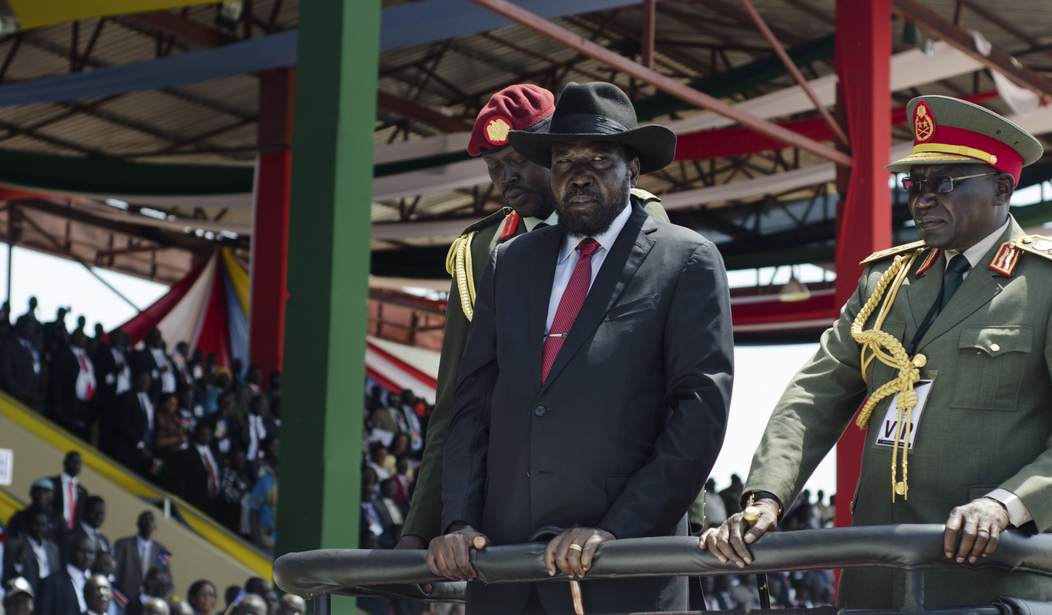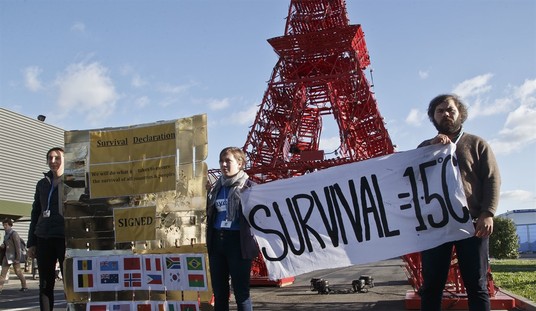A new report from anti-genocide and humanitarian relief groups followed the money trail in South Sudan’s civil war in a project intended to unveil the links between armed conflict and corruption.
The Sentry was launched by George Clooney and John Prendergast; it’s a collaboration between Prendergast’s Enough Project and Not On Our Watch, an international aid organization founded by Clooney, Brad Pitt, Matt Damon, Don Cheadle, Jerry Weintraub and David Pressman. Bringing together a team of financial analysts as well as regional and policy experts, The Sentry wants to track the money behind atrocities and crimes against humanity.
Their first target: South Sudan, which has been embroiled in conflict since a 2013 power struggle between President Salva Kiir and former deputy Riek Machar. Upwards of 300,000 people have been killed in the conflict and, according to Amnesty International, 1.6 million have been internally displaced while 600,000 fled to other countries. About 4 million in South Sudan suffer from food shortages.
In a foreword to the report, Clooney and Prendergast said their two-years investigation “has generated substantial information indicating that top officials ultimately responsible for mass atrocities in South Sudan have at the same time managed to accumulate fortunes, despite modest government salaries.”
Project analysts, they noted, “painstakingly collected documents and other information that illustrate how money that could be used to improve the living standards of South Sudan’s population is used to fund weapons purchases or armed groups and is effectively diverted from public coffers and moved out of the country.”
The report stresses that “South Sudanese officials have benefited financially from the continuing war and have effectively ensured that there is no accountability for their human rights violations and financial crimes.”
“Several of the most powerful politicians and generals in South Sudan appear to have accumulated significant wealth in the decade since the 2005 signing of the Comprehensive Peace Agreement that ended the North-South war and laid the groundwork for the self-determination referendum that resulted in South Sudan’s independence in 2011. Much of the wealth that has been accumulated by these top leaders is in the form of high-end properties outside the country and extensive commercial holdings in both public sector and oil services contracting in South Sudan,” the report states.
They revealed that Kiir’s 12-year-old son held a 25 percent stake in a holding company formed in February 2016, and “reviewed documents indicating that at least seven of President Kiir’s children as well as his wife, First Lady Mary Ayen Mayardit, have held stakes in a wide range of business ventures.”
Officials “could not continue their conduct without the system of international banks, businesses, arms brokers, real estate firms, and lawyers who, knowingly or unwittingly, facilitate the violent kleptocracy that South Sudan has become.”
This includes, the report highlights, foreign companies that have “made direct payments to the personal bank accounts of high-ranking South Sudanese generals” and financial infrastructure that has allowed officials to move money “with ease.”
“International actors profit from instability and continued violence,” the report continues. “Documents obtained by The Sentry indicate that, in mid-2014, a Russian broker identifying himself as ‘Mark Goldmann’ acted as an intermediary between Vice President Machar and a Kiev-based defense firm called Nebo Ukrainy. The documents indicate that Mr. Goldmann (apparently an alias for someone named Magomed Erzanukaev) was involved in ‘importing military equipment for the improvement of its military defense…in return for crude oil’ from South Sudan. Other documents purport to afford Goldmann power of attorney for both Machar and Nebo Ukrainy. Mr. Goldmann did not reply to requests for comment.”
The Sentry calls for “a new strategy to counter atrocities that will use the tools of financial pressure normally reserved for countering terrorism, organized crime, and nuclear proliferation for two purposes: first, to bring to account those government actors in South Sudan who until now have been able to operate with near impunity because the world imposes no consequences for their behavior; and second, to create significant and until now missing international leverage by altering the cost-benefit analysis of those leaders and shifting their incentives away from violence, atrocities, and corruption and toward peace, human rights, and transparency.”
Measures suggested include “take proactive steps to curb the laundering of the proceeds of corruption in South Sudan—and crack down on any banks that fail to stop such transactions”; “impose smarter sanctions on a wide array of high-impact targets and ensure these sanctions are robustly enforced”; “encourage and support South Sudan’s neighbors to lead in combating the laundering of assets looted from South Sudan and imposing asset freezes on those most responsible for human rights violations and financial misconduct”; and “introduce a financial management system that prevents violent kleptocrats from capturing state institutions to facilitate the looting of public resources.”
“Neither President Kiir nor anyone in his inner circle has experienced any deterring consequences for the large-scale looting and killing in South Sudan,” the report stresses, extensively describing his ranch compound that “has also been linked to a militia responsible for some of the worst atrocities committed during the current civil war.”
Clooney and Prendergast said the new strategy to counter mass atrocities should
“utilize the tools of financial pressure normally reserved for countering terrorism, organized crime, and nuclear proliferation.”
“The new approach would combine anti-money laundering measures with targeted asset freezes focused on key leaders and their networks, accompanied by robust enforcement,” they said. “These tools would have two objectives: to create leverage in support of more effective peace efforts, human rights protections, and good governance initiatives; and to bring to account those responsible for atrocities—officials who have been operating with impunity because the international community imposes no meaningful consequences for their war crimes and appropriation of state resources.”
“In South Sudan, war crimes shouldn’t pay.”









Join the conversation as a VIP Member